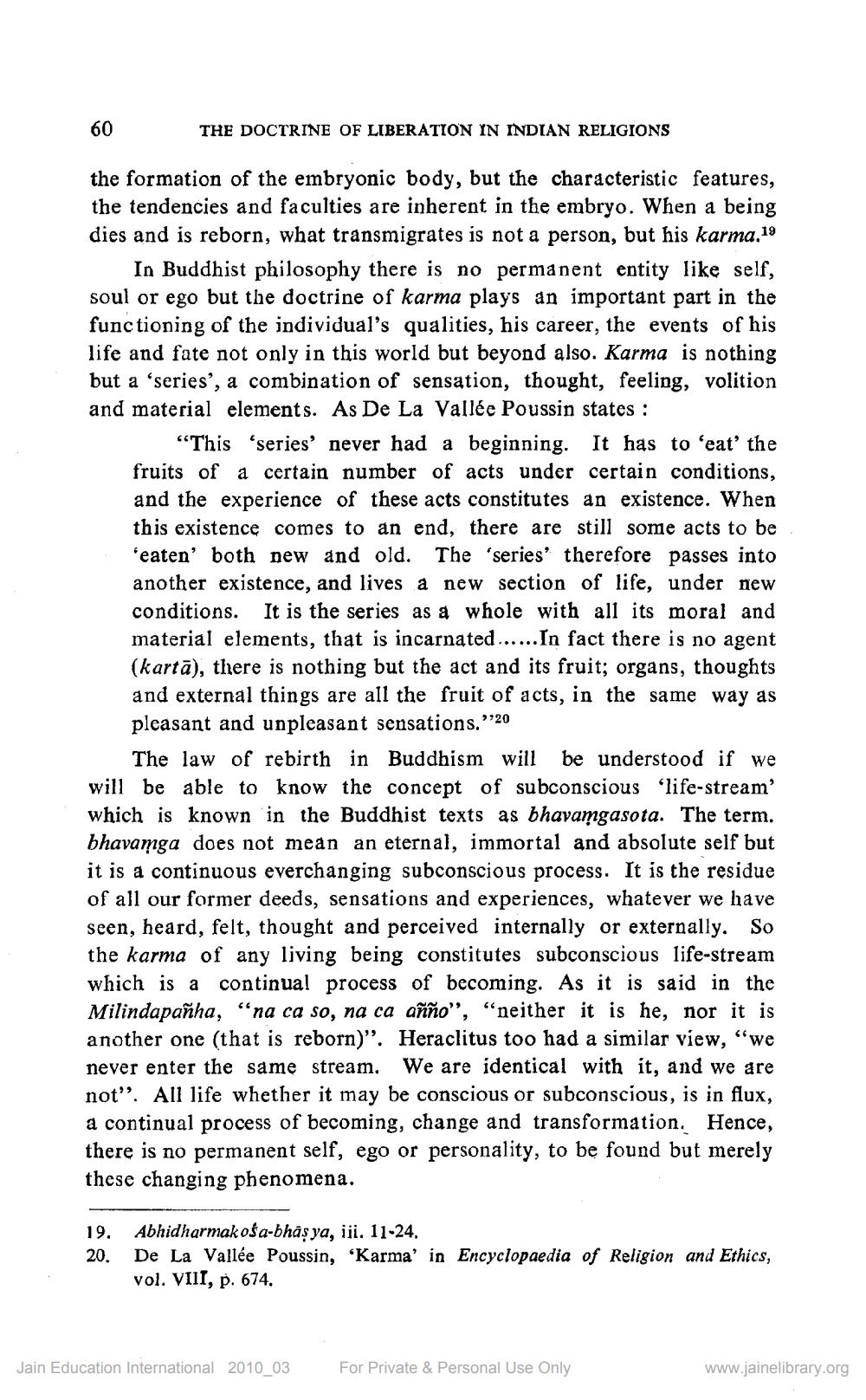________________
60
THE DOCTRINE OF LIBERATION IN INDIAN RELIGIONS
the formation of the embryonic body, but the characteristic features, the tendencies and faculties are inherent in the embryo. When a being dies and is reborn, what transmigrates is not a person, but his karma.19
In Buddhist philosophy there is no permanent entity like self, soul or ego but the doctrine of karma plays an important part in the functioning of the individual's qualities, his career, the events of his life and fate not only in this world but beyond also. Karma is nothing but a 'series', a combination of sensation, thought, feeling, volition and material elements. As De La Vallée Poussin states:
19.
20.
"This 'series' never had a beginning. It has to 'eat' the fruits of a certain number of acts under certain conditions, and the experience of these acts constitutes an existence. When this existence comes to an end, there are still some acts to be 'eaten' both new and old. The 'series' therefore passes into another existence, and lives a new section of life, under new conditions. It is the series as a whole with all its moral and material elements, that is incarnated...... In fact there is no agent (kartā), there is nothing but the act and its fruit; organs, thoughts and external things are all the fruit of acts, in the same way as pleasant and unpleasant sensations."'20
The law of rebirth in Buddhism will be understood if we will be able to know the concept of subconscious 'life-stream' which is known in the Buddhist texts as bhavamgasota. The term. bhavamga does not mean an eternal, immortal and absolute self but it is a continuous everchanging subconscious process. It is the residue of all our former deeds, sensations and experiences, whatever we have seen, heard, felt, thought and perceived internally or externally. So the karma of any living being constitutes subconscious life-stream which is a continual process of becoming. As it is said in the Milindapanha, "na ca so, na ca añño", "neither it is he, nor it is another one (that is reborn)". Heraclitus too had a similar view, "we never enter the same stream. We are identical with it, and we are not". All life whether it may be conscious or subconscious, is in flux, a continual process of becoming, change and transformation. Hence, there is no permanent self, ego or personality, to be found but merely these changing phenomena.
Abhidharmak ośa-bhāṣ ya, iii. 11-24.
De La Vallée Poussin, 'Karma' in Encyclopaedia of Religion and Ethics, vol. VIII, p. 674.
Jain Education International 2010_03
For Private & Personal Use Only
www.jainelibrary.org




